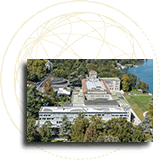HANDBOOK ON ACCESSION TO THE WTO: CHAPTER 3
Technical assistance and training for acceding countries
Accession to the WTO is a complex process and all acceding governments need expert advice to master the WTO rules and obligations, the procedures governing the accession negotiations, the demands that the process makes of them and how to respond to these demands. Applicants are also ipso facto participants in the negotiations under the Doha Development Agenda20 and need to keep abreast of the issues being dealt with there, as they will be expected to accept the results of these negotiations when they become WTO Members.
The WTO provides trade-related technical assistance and training to acceding LDCs, developing countries and low-income countries in transition within its area of competence.21 Its main purpose has been to assist these applicants to better understand and implement WTO obligations and to exercise their rights under the WTO agreements once they become Members of the organization. The system recognizes the special needs of least-developed countries. The priority accorded to TRTA for acceding LDCs was made explicit in the Doha Declaration, where Ministers “instruct the Secretariat to reflect the priority that [they] attach to LDC accession in the annual plans for technical assistance”22 and in the Guidelines for the Accession of LDCs.
WTO agreements are designed to make a substantial contribution to economic development23 but it is up to traders to translate the opportunities created by these agreements into increased trade. The WTO does not itself provide TRTA to address supply-side issues, such as the difficulties that new Members may have in producing goods and services of exportable quality and getting them to export markets, but cooperates with other providers of TRTA active in this area. The WTO has emphasized the necessity for the effective coordinated delivery of technical assistance with bilateral donors and relevant international and regional intergovernmental institutions.24 The WTO Secretariat coordinates its TA Plans, to the extent possible, in an informal, ad hoc way.25 The “WTO’s Global Technical Assistance Database (GTAD)” was developed with the objective of being the portal for an exchange and sharing of information between partner agencies on the future execution of TRTA and CB activities. This could also contribute to building and enhancing synergies as well as the efficiency in the global delivery of TRTA and CB.26
The provision of TRTA is dealt with separately from the WTO’s formal accession process outlined above. In particular, WTO Members have not agreed to allow applicants to make the implementation of WTO commitments conditional on the receipt of TRTA.
The following paragraphs deal with relevant TRTA available from the WTO Secretariat and from other organizations.
Notes:
20. However, decisions on the outcomes of the negotiations are taken only by WTO Members.
back to text
21. Marrakesh Ministerial Declaration of 15 April 1994, para
5. back to text
22. Ministerial Declaration, para 42. back to text
23. Marrakesh Agreement Establishing the WTO,
Preamble. back to text
24. Doha Declaration, para 39. back to text
25. WTO document WT/ACC/10/Rev. 3, p. 35.
back to text
26.
Global Technical Assistance Database (GTAD) back to text
